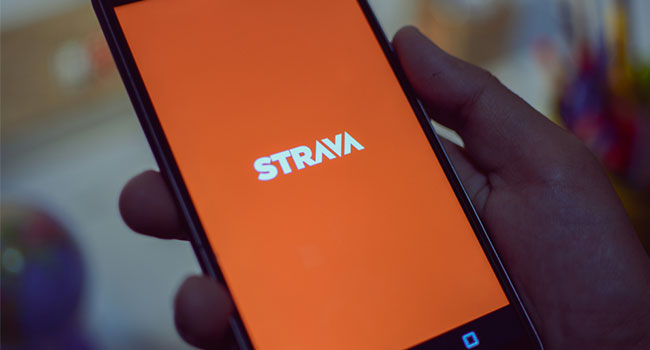
Fitness App Becomes Security Risk After Military Movement Discovered
Strava fitness app included a heat map of movement in their newest application upgrade which could be used against military bases.
- By Sydny Shepard
- Jan 30, 2018
A fitness tracking app that maps people's exercise habits could pose security risks to users around the world, including our military.
The application, called Strava, introduces itself as the "social network for athletes" by allowing uses to share their running routes, released a newly upgraded global heatmap last November. According to CNN, experts and keen observers have recently realized its potential to reveal location patterns of security forces working out at military bases in remove locations.
A Twitter user Nathan Ruser shared two images of the heatmap to his account noting how "clearly identifiable and mappable" U.S. military bases were.
"If soldiers use the app like normal people do, by turning it on tracking when they go to do exercise, it could be especially dangerous. This particular track looks like it logs a regular jogging route. I shouldn't be able to establish any Pattern of life info from this far away," Ruser tweeted.
Strava says it has "tens of millions" of users and, according to the company, marked three trillion latitude/longitude points on the updated map. It tracks location data using GPS from FitBits, cellphones and other fitness tracking devices.
Terry Ray, CTO of Imperva, says the real question is why this breach matters: because this data was collected by IoT devices that were generally ignored by IT and organizations as a whole.
“It's important that organizations think outside the box on how technology and more importantly the data they collect can be used," Ray said. "Consider the case of private data in retail. Payment card industry (PCI) standards say you must protect data in various ways, specifically credit card information. It makes no provision for users names, addresses, phone numbers and other private data unrelated to PCI. So organizations protect just credit data, because that’s what matters for regulation and is what’s perceived as important data. Yet, names, addresses and phone numbers are actually more valuable to data thieves and often ignored by IT."
In response to inquiries about the Strava data, Pentagon spokeswoman Maj. Audricia Harris said "DoD takes matters like these very seriously and is reviewing the situation to determine if any additional training or guidance is required, and if any additional policy must be developed to ensure the continued safety of DoD personnel at home and abroad."
About the Author
Sydny Shepard is the Executive Editor of Campus Security & Life Safety.